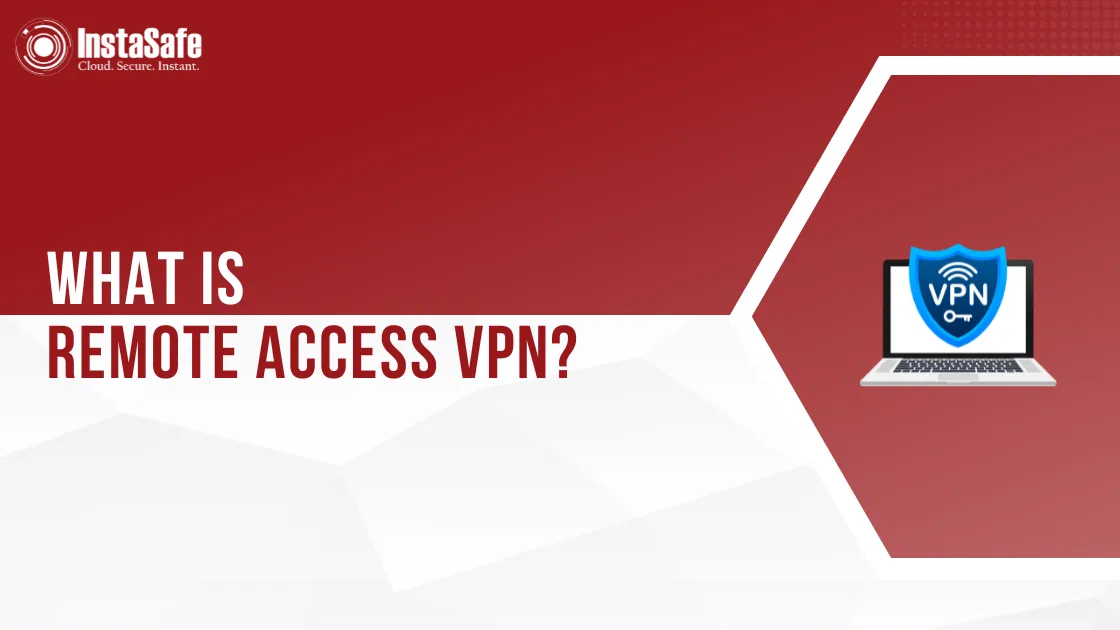What is Remote Access VPN?

In today’s world, remote work has come increasingly popular, and businesses are espousing new technologies to enable remote access to their networks. One similar technology is the Remote Access Virtual Private Network( VPN), which enables remote workers to access their company's network securely over the internet. In this blog post, we will discuss what a Remote Access VPN is, how it works, and its benefits for businesses.
What is Remote Access VPN?
A Remote Access VPN is a type of VPN that enables remote workers to securely obtain access to their company's network over the internet. Remote Access VPNs use a customer-server model, where the remote worker's device acts as the customer and the company's network acts as the server. The VPN customer software is installed on the remote worker's device, and the VPN server software is installed on the company's network.
How do Remote Access VPNs Work?
Remote Access VPNs work by establishing a secure, translated lair between the remote worker's device and the company's network. The VPN customer software on the remote worker's device encrypts all business before transferring it over the internet. The VPN server software on the company's network receives the translated business, decrypts it, and forwards it to the applicable network resource. The Remote Access VPN uses a set of protocols to establish and maintain the secure, translated lair. The two most generally used protocols are the Point-to-Point Tunneling Protocol( PPTP) and the Internet Protocol Security( IPSec) protocol.
The PPTP protocol is a simple, featherlight protocol that's easy to set up and use. It's supported by the utmost operating systems and is extensively used in small and medium-sized businesses.
The IPSec protocol is a more secure protocol that provides stronger encryption and authentication. It's used in large enterprises and government associations that bear high situations of security.
Benefits of Remote Access VPNs
Secure Access: Remote Access VPNs give secure access to company resources over the internet. All business is translated, guarding it against wiretapping and other forms of cyber attacks.
Flexible Access: Remote Access VPNs give remote workers flexible access to company resources from anywhere in the world. This enables remote workers to work from home, on the go, or from any position with an internet connection.
Cost Savings: Remote Access VPNs can give cost savings for businesses, as they exclude the need for precious devoted lines or leased lines. Remote workers can use internet connections to access company resources.
Increased Productivity: Remote Access VPNs can increase productivity by enabling remote workers to work more efficiently. Remote workers can access company resources from anywhere, at any time, which enables them to complete work swiftly and more efficiently.
Challenges of Remote Access VPNs
Security Risks: Remote Access VPNs can pose security pitfalls if not enforced rightly. Weak watchwords, outdated software, and relaxed bias can all compromise the security of the VPN.
Network Traffic: Remote Access VPNs can beget network traffic, especially during peak operation times. This can lead to slow network performance and dropped productivity.
Complexity: Remote Access VPNs can be complex to set up and manage, especially for small and medium-sized businesses with limited IT resources.
Conclusion
Remote Access VPNs are a precious tool for businesses that want to enable their remote workers to access company resources securely over the internet. They give flexible, cost-effective, and secure access to company resources from anywhere in the world. Still, businesses must be apprehensive of the security pitfalls and network traffic associated with Remote Access VPNs and apply proper security measures to ensure the safety of their data.
Key Products
Multi Factor Authentication | Identity And Access Management | ZTNA | Zero Trust Application Access | Secure Enterprise Browser
Key Features
Single Sign On | Endpoint Security | Device Binding | Domain Joining | Always On VPN | Contextual Access | Clientless Remote Access | Device Posture Check
Key Solutions
VPN Alternatives | DevOps Security | Cloud Application Security | Secure Remote Access | VoIP Security
